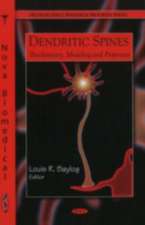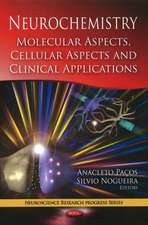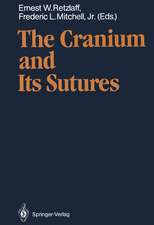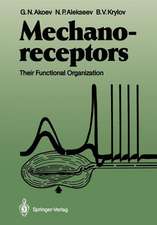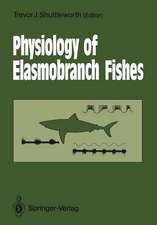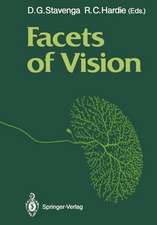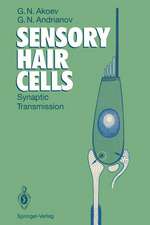Stereotaxic Neurosurgery in Laboratory Rodent: Handbook on Best Practices
Autor Barbara Ferry, Damien Gervasoni, Catherine Vogten Limba Engleză Hardback – 8 mai 2014
| Toate formatele și edițiile | Preț | Express |
|---|---|---|
| Paperback (1) | 857.90 lei 38-44 zile | |
| Springer – 23 aug 2016 | 857.90 lei 38-44 zile | |
| Hardback (1) | 1108.15 lei 3-5 săpt. | |
| Springer – 8 mai 2014 | 1108.15 lei 3-5 săpt. |
Preț: 1108.15 lei
Preț vechi: 1351.40 lei
-18% Nou
Puncte Express: 1662
Preț estimativ în valută:
212.07€ • 230.28$ • 178.14£
212.07€ • 230.28$ • 178.14£
Carte disponibilă
Livrare economică 02-16 aprilie
Preluare comenzi: 021 569.72.76
Specificații
ISBN-13: 9782817804712
ISBN-10: 2817804716
Pagini: 181
Ilustrații: XVIII, 181 p. 151 illus., 136 illus. in color.
Dimensiuni: 155 x 235 x 2 mm
Greutate: 0.43 kg
Ediția:2014
Editura: Springer
Colecția Springer
Locul publicării:Paris, France
ISBN-10: 2817804716
Pagini: 181
Ilustrații: XVIII, 181 p. 151 illus., 136 illus. in color.
Dimensiuni: 155 x 235 x 2 mm
Greutate: 0.43 kg
Ediția:2014
Editura: Springer
Colecția Springer
Locul publicării:Paris, France
Public țintă
ResearchCuprins
Regulatory and Ethical Considerations.- Elements of Descriptive Neuroanatomy.- Elements of Functional Neuroanatomy: The Major Neurotransmitter Systems.- Stereotaxic Approach of a Target Structure.- Preparation of the Stereotaxic Surgical Procedure.- Post-mortem examination of animals.
Recenzii
From the book reviews:
“This is a comprehensive ‘how to’ manual on stereotaxic neurosurgery in mice and rats. … This is both a useful and essential reference guide for first timers and advanced investigators. The noradrenergic, cholinergic, neuropeptide, and serotonergic ascending and descending pathways are mapped and diagramed very clearly. Neurosurgery, Neurology, Psychiatry, med students, grad students will all find the book well written, easy to follow, and user friendly. … I recommend this book highly to all audiences.” (Joseph J. Grenier, Amazon.com, June, 2014)
“This is a comprehensive ‘how to’ manual on stereotaxic neurosurgery in mice and rats. … This is both a useful and essential reference guide for first timers and advanced investigators. The noradrenergic, cholinergic, neuropeptide, and serotonergic ascending and descending pathways are mapped and diagramed very clearly. Neurosurgery, Neurology, Psychiatry, med students, grad students will all find the book well written, easy to follow, and user friendly. … I recommend this book highly to all audiences.” (Joseph J. Grenier, Amazon.com, June, 2014)
Notă biografică
Dr Barbara Ferry works in the Center of Research in Neurosciences Lyon, at the university of Lyon in France. She is the author of numerous research articles and book chapters and is strongly involved in teaching activities in the field of stereotaxic neurosurgery as well as in neurosciences.
Textul de pe ultima copertă
Stereotaxic neurosurgery in rodents is used by a variety of people working at research laboratories (research staff, technicians, students at animal facilities...). The present handbook presents all the steps necessary to complete a stereotaxic neurosurgery protocol in accordance with current animal welfare guidelines. This book will guide surgeons step by step, from anesthesia to the post-surgery recovery procedures, including asepsis of the surgical tools and surgical zone, analgesia, correctly identifying the reference points on the skull and brain targets, etc. In keeping with the current international trends, the authors above all focus on the following points: the consideration of pain and how to best treat it depending on the type of surgery; and ensuring asepsis. This book will serve as an important reference work and valuable guidebook for the scientific community.
Caracteristici
Short introductions to descriptive and functional neuroanatomy Numerous step-by-step tutorials The methods are described in accordance with the current international welfare guidance’s








